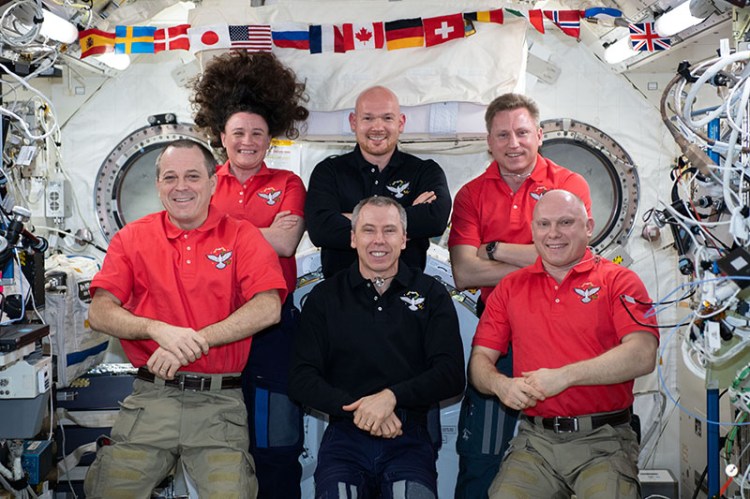When a tiny hole was discovered inside the International Space Station last week, U.S. and Russian authorities initially suspected a micrometeoroid strike. More than 170 million pieces of space debris circle in the earth’s orbit and a collision with the ISS appeared to be inevitable.
Authorities said last week that the leak had led to a small drop in cabin pressure, but that the six astronauts who are currently on board the ISS were at no point in real danger.
A sealant was applied last Thursday and cabin pressure returned to normal.
But the incident’s fallout continued this week, after Russian officials who were subsequently tasked with examining the hole concluded that it had been drilled – potentially deliberately. Even the possibility of human interference could prove to be explosive, given that the ISS is one of the last remaining joint Russian-American projects. The space station’s team is currently composed of three Americans, two Russians and one German.
All of them live and work in the ISS’s core structure that is connected to two Russian-made Soyuz spacecraft modules. The leaking one had only arrived in June. Astronauts both arrive and depart from the ISS in the two capsules, with the next departure to Earth scheduled for December, and any interference could have ripple effects on the space station’s operations.
Investigators did not specify whether they believed the hole was drilled on Earth or in space, but Russia’s Roscosmos space agency did not exclude the possibility of sabotage.
“There were several attempts at drilling,” Roscosmos head Dmitry Rogozin was quoted as saying by Russian media outlets.
“We are checking the Earth version. But there is another version that we do not rule out: deliberate interference in space,” said Rogozin.
It’s not the first time that Russia is speculating about possible sabotage of its space operations.
Six years ago, Rogozin’s predecessor in the job, Vladimir Popovkin, suggested that foreign powers were responsible for a series of spacecraft launch failures at the time.
And this week, former Russian astronaut turned MP Maxim Surayev raised the possibility that the ISS hole may have been drilled by an astronaut who “might want to go home,” even though he acknowledged that a Russian production mistake could also not be ruled out. “I wish to God that this is a production defect, although that’s very sad too – there’s been nothing like this in the history of Soyuz ships.” Russia said it was checking its spacecraft units currently in construction for similar defects.
NASA did not immediately respond to a request for comment.
Send questions/comments to the editors.



Success. Please wait for the page to reload. If the page does not reload within 5 seconds, please refresh the page.
Enter your email and password to access comments.
Hi, to comment on stories you must . This profile is in addition to your subscription and website login.
Already have a commenting profile? .
Invalid username/password.
Please check your email to confirm and complete your registration.
Only subscribers are eligible to post comments. Please subscribe or login first for digital access. Here’s why.
Use the form below to reset your password. When you've submitted your account email, we will send an email with a reset code.